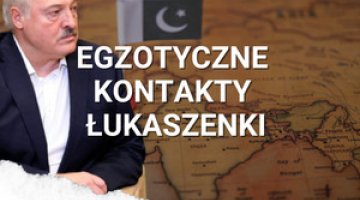Déjà vu: Lukashenko has released political prisoners
On 22nd August President Alyaksandr Lukashenka pardoned all six political prisoners and released them from prison sentence: the opposition’s presidential candidate in the December 2010 election Mikalay Statkevich; social activist Yury Rubtsou and four youth activists linked to the anarchist movement - Ihar Alinevich, Mikalay Dzyadok, Artsiom Prakapenka, Yauhen Vaskovich. Lukashenka released the political prisoners despite the fact that they refused to write requests to be granted a pardon. The legal aspects of Lukashenka’s decision remain unknown. It may be inferred from available information that the former prisoners will be placed under preventative surveillance (Statkevich will remain under surveillance for eight years). The establishment of the surveillance means that formally the remaining part of the sentence has not been nullified and full citizen rights have not been reinstated. The released prisoners have not been subjected to rehabilitation procedure.
Commentary
- The pardoning of political prisoners in Belarus is intended to contribute to attempts to normalise relations with the EU and the US. Belarus has intensified these attempts in the context of the conflict between Russia and Ukraine. However, Minsk has been treating the normalisation process with the West as instrumental. The Belarusian government is hoping that this move will help it extend its room for manoeuvre and strengthen its position in relations with Russia (including for negotiating further subsidies and loans). The release of the political prisoners is also closely linked to the presidential election scheduled for 11th October. The Belarusian government is keen to see Lukashenka re-elected without incident so that the assessment of the election by Western institutions would not get in the way of normalising its relations with the West. At the same time Lukashenka has minimalised the risk linked to pardoning Statkevich. As the opposition leader was released after the election process had begun and has been placed under surveillance, he will not be able to stand for election.
- The release of the political prisoners is also linked with Belarus’s worsening economic situation. It is caused mainly by the crisis in Russia which is Belarus’s main trading partner (nearly 50% of all trade) and a fall in oil prices and petroleum products (the revenue from re-exporting goods produced from Russian oil accounts for 30% of Belarusian exports). The Belarusian government believes that, given the crisis and recession in Russia (its main trading partner and lender), Minsk should also try to secure alternative sources of funding.
- Lukashenka has proven time and again that he treats the political prisoners as a bargaining chip in Belarus’s relations with the West. The release in August 2008 of three political prisoners – including Alyaksandr Kazulin, a candidate in the 2006 presidential election – provided an impetus to attempts then in place to normalise relations between Belarus and the West, including a US$ 3.5 billion loan granted by the International Monetary Fund. This normalisation process has been undermined by the brutally quelled demonstration following the presidential election in December 2010. The fact that Lukashenka has pardoned and released the political prisoners does not change the essence of his authoritarian regime in which new political prisoners may appear at any time. There are no grounds to believe that the Belarusian regime is ready to undergo political or economic liberalisation.





